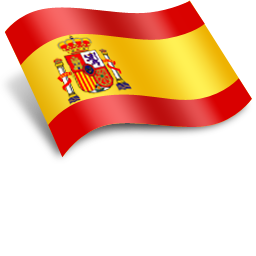
Subscribe to News Letter
Currency Quotes
Super User
Incoterms
There are thirteen INCOTERMS. They are:
EXW (Ex Works) - In this case, the entire load is the responsibility of the importer. The exporter is obliged only to provide the product and invoice in their establishment. Thereafter, expenses or damages are losses with a load of who's buying. Because of this, the method is not widely used, although it is possible for any means of transport.
FCA (Free Carrier) - The importer indicates the place where the exporter delivers the goods, where his responsibilities cease on cargo which is in the custody of the carrier. Can be used for any mode of transport, including multimodal.
FAS (Free Alongside Ship) - The goods must be delivered by the exporter along the ship's side, already cleared for boarding. The costs of loading and all other follow thereafter on account of the importer. This Incoterm is used for sea or waterway.
FOB (Free on Board) - is the most widely used. The exporter delivers the load already cleared on the ship in port of shipment by the importer. Thus, all costs in the country of origin shall be borne by the exporter. Other costs such as freight and insurance, in addition to cargo handling at destination, borne by the importer. The mode is also restricted to transport maritime.
CFR (Cost and Freight) - Under this term, the exporter delivers the cargo at the port of destination, paying for expenses with sea freight. The risks, however, transfer from the time when the goods cross the ship's rail, which causes insurance to be paid by the importer and the customs clearance at destination. It is also restricted to modal shipping waterway.
CIF (Cost, Insurance and Freight) - This mode is similar to CFR, but the exporter is also responsible for the insurance premium. Therefore, he has to deliver the cargo on board the vessel at the port of shipment, freight and insurance paid. The mode is also restricted to modal maritime.
CPT (Carriage Paid to) - The term fulfills the same obligations as the CFR, ie, the exporter must pay the shipping costs of the goods and their international freight to the designated destination. The difference is that can be used in connection with any means of transport.
CIP (Carriage and Insurance Paid to) - The game has the same characteristics of the CIF, where the exporter bears the cost of shipment of freight to the place of destination and insuring the goods to the named place of destination. The difference is that can be used for all forms of transport, including multimodal.
DAF (Delivered At Frontier) - The load is employed by the exporter on the edge bordering the importing country. This term is used mainly in cases of road or rail.
DES (Delivered Ex Ship) - The exporter places the burden to the importer at the destination, on board the ship, bearing all the costs of freight and insurance, getting free of cost only clearance. Used only for sea or waterway.
DEQ (Delivered Ex Quay) - The merchandise is delivered to the importer at the port of destination, leaving the exporter, plus costs of freight and insurance, afford spending on landing. The importer is responsible only for expenses with ease.
DDU (Delivered Duty Unpaid) - This mode allows the scheme called door-to-door, since it is the responsibility of the exporter to deliver the goods at the place designated by the importer, with all expenses paid, except only for royalty payments customs, taxes and other charges on imports. Can be used for any mode of transport.
DDP (Delivered Duty Paid) - This system is the exact opposite of EXW therefore all responsibility is load the exporter. He is committed to deliver the goods at the place determined by the importer, including paying taxes and other import charges. He just will not cover the clearance of goods. Can be used with any mode of transport.
Incoterms
Existem treze INCOTERMS. São eles:
EXW (EX Works) - Neste caso, toda a responsabilidade da carga é do importador. O exportador tem a obrigação apenas de disponibilizar o produto e a fatura em seu estabelecimento. A partir daí, despesas ou prejuízos com danos ficam a carga de quem está comprando. Por causa disso, a modalidade é pouco utilizada, apesar de ser possível para qualquer meio de transporte.
FCA (Free Carrier) - O importador indica o local onde o exportador entregará a mercadoria, onde cessam suas responsabilidades sobre a carga, que fica sob custódia do transportador. Pode ser utilizada por qualquer meio de transporte, inclusive multimodal.
FAS (Free Alongside Ship) - A mercadoria deve ser entregue pelo exportador junto ao costado do navio, já desembaraçada para o embarque. As despesas de carregamento e todas as demais daí por diante seguem por conta do importador. Esse Incoterm é usado para transporte marítimo ou hidroviário.
FOB (Free on Board) - É a modalidade mais usada. O exportador entrega a carga já desembaraçada a bordo do navio em porto de embarque indicado pelo importador. Dessa forma, todas as despesas no país de origem ficam a cargo do exportador. Os demais gastos, como frete e seguro, além da movimentação da carga no destino, correm por conta do importador. A modalidade também é restrita aos transportes marítimo e hidroviário.
CFR (Cost and Freight) - Sob esse termo, o exportador entrega a carga no porto de destino, custeando os gastos com frete marítimo. Os riscos, no entanto, cessão a partir do momento em que a mercadoria cruza a amurada do navio, o que faz com que o seguro seja pago pelo importador, assim como o desembaraço no destino. Também está restrito aos modais marítimo hidroviário.
CIF (Cost, Insurance and Freight) - Essa modalidade é semelhante ao CFR, mas o exportador é responsável também pelo valor do seguro. Portanto, ele tem que entregar a carga a bordo do navio, no porto de embarque, com frete e seguro pagos. A modalidade também é restrita aos modais marítimo e hidroviário.
CPT (Carriage Paid to) - O termo reúne as mesmas obrigações do CFR, ou seja, o exportador deverá pagar as despesas de embarque da mercadoria e seu frete internacional até o local de destino designado. A diferença é que pode ser utilizado com relação a qualquer meio de transporte.
CIP (Carriage and Insurance Paid to) - A modalidade tem as mesmas características do CIF, onde o exportador arca com as despesas de embarque, do frete até o local de destino e do seguro da mercadoria até o local de destino indicado. A diferença é que pode ser utilizado para todos os meios de transporte, inclusive o multimodal.
DAF (Delivered At Frontier) - A carga é empregue pelo exportador no limite de fronteira com o país importador. Este termo é utilizado principalmente nos casos de transporte rodoviário ou ferroviário.
DES (Delivered Ex Ship) - O exportador coloca a carga a disposição do importador no local de destino, a bordo do navio, arcando com todas as despesas de frete e seguro, ficando isento apenas dos custos de desembaraço. Utilizado exclusivamente para transporte marítimo ou hidroviário.
DEQ (Delivered Ex Quay) - A mercadoria é disponibilizada ao importador no porto de destino designado, cabendo ao exportador, além de custos de frete e seguro, bancar os gastos com desembarque. O importador é responsável apenas pelos gastos com desembaraço.
DDU (Delivered Duty Unpaid) - Essa modalidade possibilita o chamado esquema porta-a-porta, uma vez que fica a cargo do exportador entregar a mercadoria no local designado pelo importador, com todas as despesas pagos, exceção apenas para os pagamentos de direitos aduaneiros, impostos e demais encargos da importação. Pode ser utilizado para qualquer modalidade de transporte.
DDP (Delivered Duty Paid) - Esse sistema é exatamente o oposto do EXW, pois toda a responsabilidade da carga é do exportador. Ele tem o compromisso de entregar a mercadoria no local determinado pelo importador, pagando inclusive os impostos e outros encargos de importação. Ele apenas não arcara com o desembaraço da mercadoria. Pode ser utilizado com qualquer modalidade de transporte.
International Logistics
The division Victor´s Logistics has a network of agents in all continents, thus aiming at efficient service whatever the origin or destination of your merchandise.
Professionals trained and certified to broker base load and hazardous cargo, providing the best logistics solution coupled with the best cost / benefit for your shipment to be successful.
The processes are managed through software directed to International Freight Forwarding, thus making the information more accurate and accessible from any location via the internet. Since the beginning of your process, you can follow "online" status changes.
The creation of the International Logistics division aimed to facilitate the management processes of its customers, focusing all the information in one place. The emission of bills of lading and labels are made locally, regardless of place of shipment of your goods, be it Congonhas, Guarulhos, Santos and Rio de Janeiro.
Following are some of our services:
- Door to Door Shipments
- Reserve Square
- Direct and consolidated shipments (FCL and LCL)
- Express service via courier
- Shipments Charter
- Break Bulk Shipments
- Managing the logistics chain
- Special Projects logistics
|
2013 © Todos os direitos reservados - by: Design da Voz








